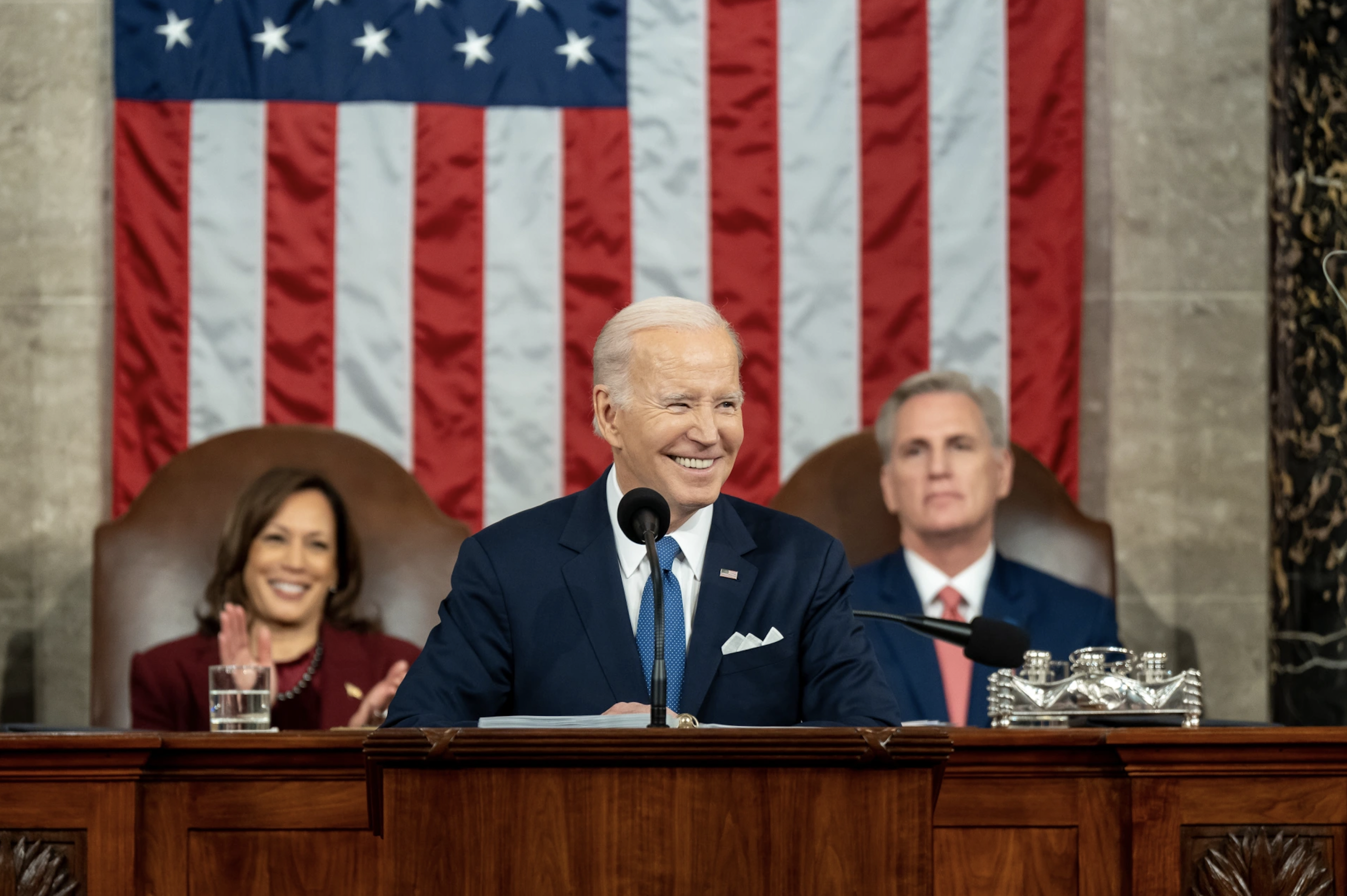Lessons from Joe Biden’s Masterclass

Kevin Lynch and Paul Deegan
February 11, 2023
Joe Biden does not have the oratorial skills of John F. Kennedy, Ronald Reagan, Bill Clinton, or Barack Obama. While he’s not even close to being in their league, his State of the Union address was a brilliant masterclass in political communication and overachieving expectations. It also issued a not-so-subtle warning to business to do more to incorporate the common good into corporate decisions.
His carefully-chosen words were straight and succinct and his delivery was sincere and scrappy at times. Biden spoke plainly. David Kusnet, former chief speechwriter to Bill Clinton and the author of the book Speaking American, has long argued that “history is kindest to those who speak simply”. Biden’s use of one and two-syllable words served him well. According to Kusnet, Biden’s brand of blue-collar, bread-and-butter populism can “trump” the MAGA’s bombastic, backlash populism. The happy warrior’s delivery was down-to-earth and conversational.
While there were no soaring JFK moments, he cleverly baited the GOP, especially Rep. Marjorie Taylor Greene, and happily rebutted their interruptions. In doing so, Biden clearly surprised both the angry Republicans and the press with his version of “float like a butterfly, sting like a bee.”
As Duncan Mavin, the UK-based senior assignment editor with the Washington Post put it, “Over here, of course, we’re used to our politicians acting out a scene from an 18th-century gin house, hollering and whooping, waving their arms and bits of paper in the air to signal opposition, or sometimes support…Wild gesticulating and hoo-hawing seems so unbecoming stateside.”
While candidate Donald Trump tapped into the angst and anger of those left behind by globalization and technological change back in 2016, Biden was speaking directly to middle class issues. While Trump played the xenophobic card, Biden was telling Americans that they should expect better from US big business. According to Biden, “Big corporations aren’t just taking advantage of the tax code. They’re taking advantage of you, the American consumer.”
For politics in 2023 and beyond, the lesson seems to be that there can be a path to power that isn’t about virtue signalling or the politics of grievance or culture wars. It’s about showing the middle class that you hear them and get the issues that matter to them. It’s about developing policies that restore economic hope and dignity.
He’s offering a wide range of policy prescriptions to do something about it. On the tax side, he’s proposed a minimum corporate tax of 15 per cent and a quadrupling of the tax on corporate stock buybacks.
He’s also getting tough on antitrust enforcement, saying: “capitalism without competition is not capitalism. It is exploitation.” He wants to “strengthen anti-trust enforcement and prevent big online platforms from giving their own products an unfair advantage.” That came on the heels of an announcement by Attorney General Merrick Garland that the Department of Justice filed a civil antitrust suit against Google for monopolizing multiple digital advertising technology products. Garland said, “No matter the industry and no matter the company, the Justice Department will vigorously enforce our antitrust laws to protect consumers, safeguard competition, and ensure economic fairness and opportunity for all.”
While anti-trust actions may seem remote for most Americans, Biden’s attack on everything from bank overdraft fees to hotel “resort fees” to cable, internet and cellphone switching fees to baggage fees charged by airlines is something that resonates with middle-class voters. “Americans are tired of being played for suckers” should be a wakeup call to businesses everywhere.
For politics in 2023 and beyond, the lesson seems to be that there can be a path to power that isn’t about virtue signalling or the politics of grievance or culture wars. It’s about showing the middle class that you hear them and get the issues that matter to them. It’s about developing policies that restore economic hope and dignity.
For business, it was a mixed message. On the one hand, it signalled that industrial policy is back, big time, and government will be a partner in rebuilding competitiveness in strategic sectors. At the same time, this was a clear wakeup call to monopolies and protected oligopolies that the consumer is fed up and not going to take it anymore.
For Canadians, the economic message from the Biden address was that protectionism is alive and well in Washington. Buy America was front and centre, and ominously linked to the new industrial policies and subsidies. While the devil is in the detail of trade agreements, this does not auger well for the spirit of the USMCA or Canadian exporters.
Contributing Writer Kevin Lynch, former Clerk of the Privy Council, was later was vice chair of BMO Financial Group.
Contributing Writer Paul Deegan was a public affairs executive at BMO and CN and served in the Clinton White House.
